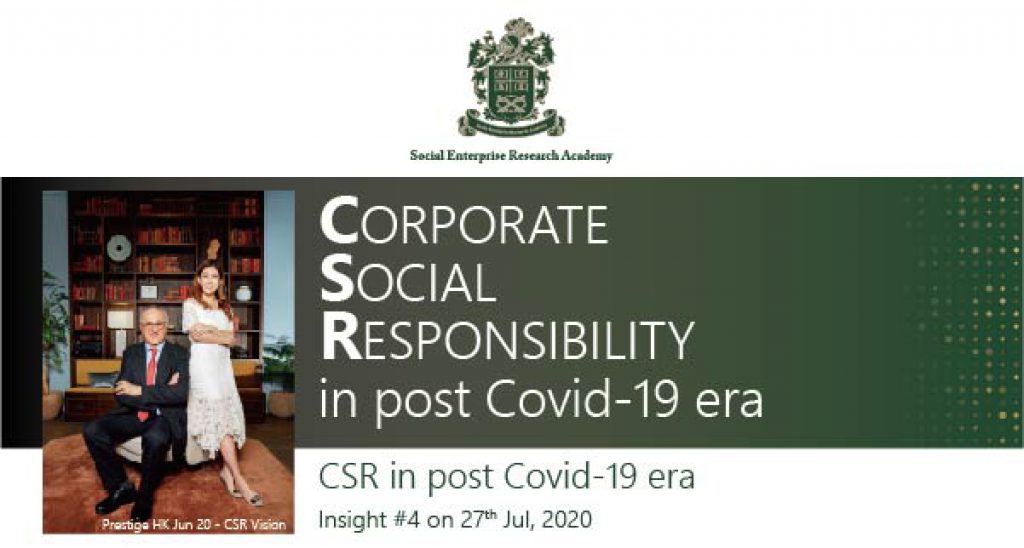
In recent years, CSR has developed beyond its dictionary definition. It means far beyond “philanthropy”, but it includes the concept of “social innovation” and “shared value”. The company should also be able to generate economic value in a way that it also produces social value for society by responding to its main challenges. Corporate are suggested to explore innovative ways to harness employees’ creativity and energy in order to address social needs while developing business opportunities. It is also suggested to work with social entrepreneurs as this helps to bring a new lens for traditional corporate.
Each company has a different organizational context, hence there will not be a standard CSR development and implementation policy that can be applicable to all industries and companies. Based on the UN Global Compact, Social Enterprise Research Academy (SERA) established the Social Caring Pledge Scheme with 6 principles to clearly laid out initiative for the adoption of sustainable business practices in Hong Kong, arguably, from a proof-point of company’s commitment to its clear and achievable objectives.
To pledge is only the first step, it is important for companies to set a clear common goal. The goal could only be found out through undertaking a process to evaluate ESG issues that are most material to the company, one can evaluate and determine which issues are most relevant to stakeholders and the company’s core business strategy as issues are weighted, prioritized and plotted on ESG Materiality Assessment Map according to their relative degree of importance.
Companies could employ third party consultant to conduct confidential interviews or hosting a ESG forum with senior executives from different lines of business and control functions, also leaders from suppliers, consumer, community development and environmental /civil rights organizations, as well as socially responsible investment firms to select what are the major factors the Company should prioritize and ask different departments to deploy detailed policies and action plans based on the same corporate goal.
We realized that the main challenge is not lying upon the materiality assessment tool, but different understandings of CSR importance to different stakeholders, how seriously different people take CSR are also based on their understanding and knowledge of the global market, related corporate training is needed but very lack of in Hong Kong. With the vision of being a socially-integrated and cross-sectorial platform to advocate a “sustainable CSR” and to enable not only listed companies but also small-medium size companies access ESG expert insights, SERA has hosted various forums in the past years based on the 6 principles of Social Caring Pledge Scheme to enable discussions among members of SERA Circle and to raise out concerns to government policy-makers, community development and environmental /civil rights organization leaders, as well as socially responsible investors. ESG would not be able to be fully integrated in the heart of company unless its top management commit and involve, therefore SERA has also focused on influencing founders and C-level management through Fellowship Selection Scheme in hope to transform entrepreneurs to social entrepreneurs.
Social Enterprise Research Academy is the trademark of Social Enterprise Research College; formerly was known as Social Enterprise Research Institute.